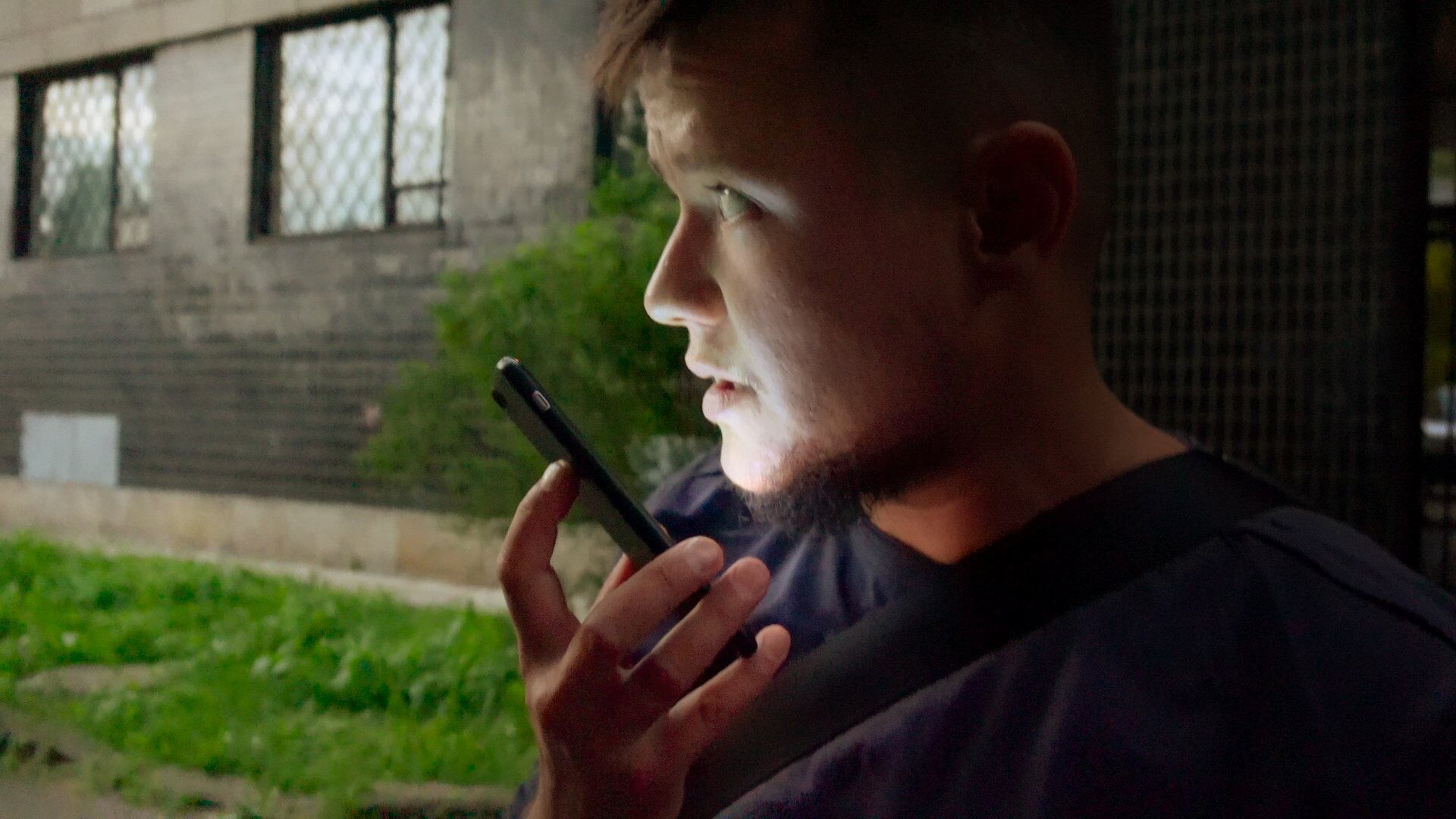Welcome to Chechnya
**** In 2017, the Chechen Republic targeted all gays and lesbians in a countrywide "hunt." Its tactics and atrocities are noted with precision in the poignant documentary Welcome to Chechnya. The film follows a network of activists who smuggle LGBTQ individuals out of Russia, focusing on two rescuers and two rescuees as they navigate their way to safety. With its rough and raw camerawork, the documentary exposes a human rights tragedy that, for one reason or another, has been purged from headlines. Here, crisis coordinator David Isteev is doing all he can to change that, not just by detailing the tragedy on film, but by spiriting at-risk gays and lesbians out of Russia to nearby countries. The film does all it can to keep its subjects safe, too. Director David France uses "deep fake" technology to overlap their faces with that of a volunteer, allowing France to capture daily routines. In the tradition of guerrilla filmmaking, France zeroes in on hang-out scenes, where men and women chat, joke and make love while hiding from authorities. There are nail-biting moments, too—checkpoints, blown covers—but France treats the banal and the pivotal equally to speak to his greater point: The queer people of Chechnya live in fear day and night, at home and in public. Chechnya the movie blends this terrifying message with glimmers of hope and resistance. NR. ASHER LUBERTO. Amazon Prime, HBO Go, HBO Now.
Days of the Whale
*** Both by recent American standards and the (perhaps outdated) reputation of the city itself, the streets of Medellín, Colombia, appear almost tranquil in Days of the Whale. We follow university student Cris (first-time actor Laura Tobón Ochoa) biking to a cafe, adopting a stray dog with her flame Simon (another newcomer, David Escallón Orrego) and dancing in a commune of fellow graffiti artists. Where injustice does exist—cartel flunkies shake down the neighborhood for "protection"—it's absorbed into a civic mural. Their threat is almost atmospheric in Medellín, so Cris and Simon must decide how seriously to take it and whether to quit painting their zoological street art over top of gang tags. Though her debut feature is slight and its script more like a sketch at times, Catalina Arroyave Restrepo brings her home city to life with marvelous assuredness and ease. This is a movie chiefly about place, and instead of explaining Medellín in a post-Escobar world, she reveals it, earning audience trust with docurealistic visuals still fluid enough to demonstrate the craft of fiction. The painting scenes are probably the film's most euphoric, and in this way, Days of the Whale is an artist's manifesto: It believes in the transformative value of creation. NR. CHANCE SOLEM-PFEIFER. Virtual Cinema.
